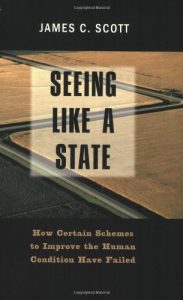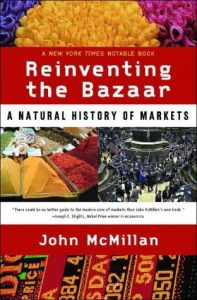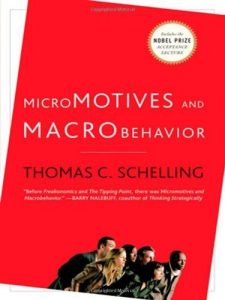[amazon_link id=”0674743806″ target=”_blank” ]Capital Without Borders: Wealth Managers and the One Percent[/amazon_link] by Brooke Harrington, a sociologist at Copenhagen Business School is utterly fascinating. Harrington trained as a wealth manager over a two year period and then conducted 65 interviews around the world with other wealth managers – mainly white middle aged men, mainly from fairly well-off backgrounds themselves. This is a rare window into their world – I’ve often wanted to see more sociology or anthropology looking at the financial markets, and here is exactly such a study.
[amazon_image id=”B01INP11GU” link=”true” target=”_blank” size=”medium” ]Capital without Borders[/amazon_image]
One intriguing aspect is the way families are the organising social structures managing the staggering wealth of the one percent. Harrington notes that the wealth managers’ main role is ensuring assets stay within the family over generations, but adds: “In some cases the fortune that holds the family together may also destroy it.” The wealth managers find themselves arranging payments for mistresses, negotiating divorces, dealing with siblings at war – protecting the family assets in spite of the family.
The book starts with a history of the emergence of the role of the trustee in mediaeval and later English common law – the trust being the main vehicle still for wealth management, with innovations from the likes of the British Virgin Islands. Wealth managers are often lawyers trained in the Anglo-Saxon legal tradition because of this heritage. The history of the role lies in a knightly tradition of loyalty and chivalry, rather bizarrely; certainly, the interviewees emphasise service and loyalty to their ‘clients’. They are far less well paid than many other roles in financial services.
The character of the business is changing, however, with the emergence of so many ‘ultra-ultra-high net worth individuals’ from Asia, who are far less comfortable than, say, traditional British rich families with the idea of handing over control of their assets to a trust structure. As one interviewee comments of the ‘new rich’: “It takes them a while to grasp the idea that it’s not their money once they put it in trust.” They enjoy the fruits but the assets themselves are to be safeguarded for the family and the future. I must say I find this idea that one can control the future strange indeed, but it clearly motivates many of the very wealthy.
The other part of the one percent world view that shines out of the interviews is their absolute belief in the injustice of any claims on their wealth – taxes of course, thieving governments, but also any creditors. The book cites Gabriel Zucman’s excellent [amazon_link id=”B018SQABD8″ target=”_blank” ]The Hidden Wealth of Nations[/amazon_link] on the scale of the tax losses. Harrington writes: “For ultra-high net worth clients, it seems, being obliged to honor their debts, pay the costs of government, and otherwise obey the laws of the land are offenses to liberty.” She adds that this fear of governments, laws, taxes, makes the business of wealth management one of safeguarding assets, rather than growing them. It is a profoundly un-productive business – the parable of the talents comes to mind. By freezing wealth on this scale, productive economic growth is diminished.
London and the British Virgin Islands (a UK territory) are the main hubs of this secretive wealth management business. One wealth manager says Asian clients refer to offshore corporations in general as ‘BVIs’. But there is competition from the up and coming Cook Islands, a speck in the middle of the Pacific – twice blacklisted by the Financial Action Taskforce and criticised by the EU as an ‘unco-operative jurisdiction’. They don’t care: the business now accounts for 10-15% of GDP. The Caymans also get a special mention for creating the Special Trusts Alternative Regime, which can last for ever and in total secrecy. The STAR trusts allow the ultra-ultras their wish to guarantee the continuation of the family’s assets for generations to come, paying no tax, in total secrecy, and with an unusual degree of control.
Harrington asks interviewees about their ethical perspective, given the context of concern about inequality. After all, their training teaches them that discretion is more important than reporting illegal activities by their clients. So, she asks them, are they not concerned about the erosion of the tax base and hence public services, or the growing inequality? Not much, is the answer. Indeed, the wealth managers’ key skill is regulatory and tax arbitrage between different nation states, so how could they agree? Shockingly, a London-based wealth manager she interviews, ‘Drew’, based in a law firm, boasts that his firm employs a significant number of the UK’s 14 Parliamentary Agents. I didn’t know about this role: these are the only non-MPs allowed to address Parliament and the critique draft legislation. They are fixed, hereditary positions. Harrington points out: “It actually gives an institutionalized voice, at the highest levels of government, to the representatives of the richest members of society. While that once meant representing the railroad barons and landed gentry of the United Kingdom, the Parliamentary Agents at Drew’s firm – and others – now typically act as a voice for the interests of high net worth individuals from outside the country.”
My one frustration with the book is that Harrington does not offer any potential solutions – and why should she? However, there is a passing comment that Israel has created incentives for its wealth managers to co-operate with the tax authorities – but she does not explain how this happened or how it works. I’d have liked to know because all national governments clearly need to do the same, and especially the UK’s government, having created the giant maw of illegal finance in London.




